2021 Digital Humanities Teaching Team
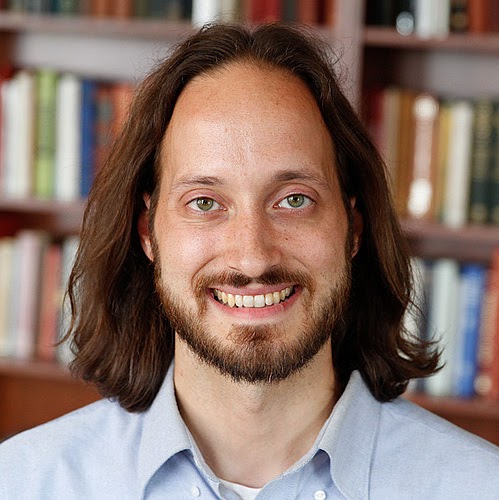
Austin Mason
Director of Digital Arts and Humanities, Lecturer in History
Humanities Center
Carleton College
@meDHieval
I am founding Director of the Digital Arts & Humanities minor program, Assistant Director of the Humanities Center for Digital Humanities, and Lecturer in History at Carleton College. In this position, I teach courses in history and digital humanities and work with students, faculty and staff to build a robust Digital Humanities program that fosters both digital scholarship and pedagogy on campus.
I am an early medieval historian by training, with an interdisciplinary research agenda encompassing religious history, material culture, archaeology and the digital humanities. My current book project, “Listening to the Early Medieval Dead: Religious Practices in England, c.400-900 CE,” comes out of my doctoral dissertation, which I completed at Boston College in 2012. I leverage archaeological evidence (like bones, brooches, and buckets) and cutting-edge GIS mapping techniques to rewrite the history of the Anglo-Saxon conversion as a complex story of locally-negotiated, lived religious practices.
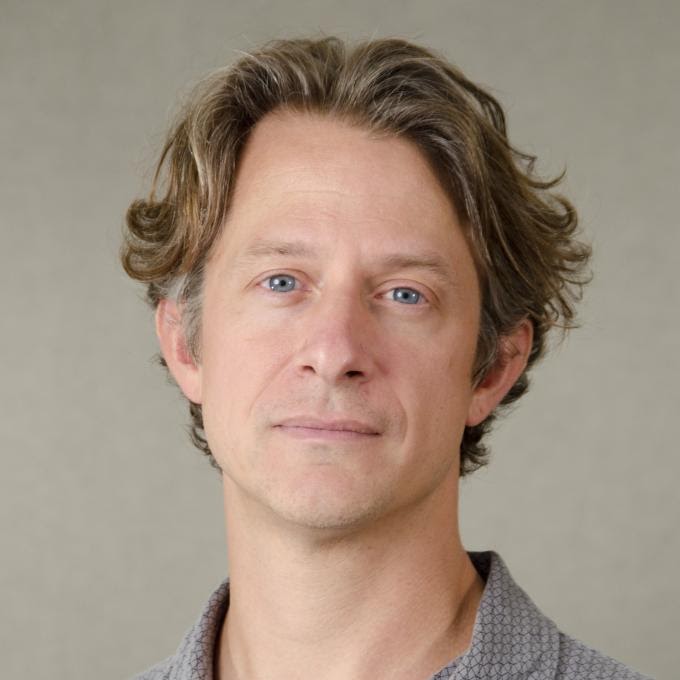
Mark Sample
Associate Professor
Digital Studies
Davidson College
I am a literary scholar whose study of recent American fiction led him to the digital world, where contemporary artists and writers are on the vanguard of experimental literature. My teaching and research has evolved to include software studies, video games, and other forms of algorithmic culture. My examination of the representation of torture in video games appeared in Game Studies (2008). In a recent article in Digital Humanities Quarterly (2013) I look “under the hood” of several video games to see what the computer code reveals about the games. My critique of the digital humanities’ approach to contemporary literature appears in Debates in the Digital Humanities (University of Minnesota Press, 2012). I also have work in Hacking the Academy (University of Michigan Press, 2013). As an experiment in procedural intervention, I remixed the entire text of Hacking the Academy as Hacking the Accident. My most recent project is 10 PRINT CHR$(205.5+RND(1)); : GOTO 10, a collaboratively written book about creative computing and the Commodore 64 (MIT Press, 2013).
Alongside my research into creative computing I am a practitioner myself. I make digital poems (such as the 100 million stanza House of Leaves of Grass) and algorithmically-generated Twitter bots (such as @_LostBuoy_). I blog at samplereality.com and can be found on Twitter as @samplereality.
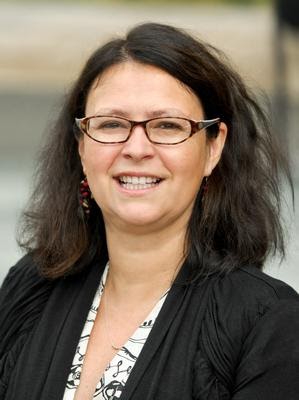
Nhora Serrano
Associate Director for Digital Learning & Research
Burke Library
Hamilton College
Originally from Colombia, I am a trained Early Modern Comparative Literature scholar whose areas of focus include: Technology Enhanced Learning & Educational Innovation, Digital Humanities, History of Book History/Print Culture, Material Culture, Visual Studies (Editorial Cartoons & Comics), Latin America/Latinx, and Medieval And Renaissance Studies.
In 2018 I was selected to be a Mellon Press Diversity Fellow at the MIT Press/MIT. In 2017 I was selected as a 2018 Eisner Industry Awards judge. During the summer 2017, I was awarded a summer NEH Institute fellowship to participate in a 4-week seminar at the Newberry Library where I researched early 20th century Chicago Tribune cartoons. In 2014 I was awarded a Smithsonian National Postal Museum fellowship for my project on the 1893 Chicago World’s Fair postal cards and postage stamps and its relationship to editorial cartoons. My publications include “Illuminating Orhan Pamuk’s My Name is Red and The Museum of Innocence” for the MLA Approaches to Teaching Orhan Pamuk (2017), “Columbia and the Editorial Cartoon” in the Handbook of Comics Studies (Oxford Univ. Press 2020), and an edited anthology Immigrants and Comics: Graphic Spaces of Remembrance, Transaction, and Mimesis (Routledge 2021).
I am a founding member and currently the Treasurer of the Comics Studies Society, and presently serve on the MLA Executive Forum on Book History, Print Cultures, Lexicography and is the Forum’s elected Representative to the MLA Delegate Assembly. Previously, I was a Visiting Assistant Professor of Comparative Literature at Hamilton College, and a Visiting Scholar of Comparative Literature at Harvard University. From 2014-2018, I served on the MLA Executive Forum on Comics and Graphic Narratives.

José Vergara
Visiting Assistant Professor
Modern Languages & Literatures
Swarthmore College
I am currently Visiting Assistant Professor of Russian at Swarthmore College, where I teach a broad spectrum of courses on Russian language and culture (19th century through the present day). I specialize in and have published several articles on prose of the long 20th century with a focus on experimental works and contemporary culture. My book on literary responses to James Joyce is forthcoming in 2021 through Cornell University Press.
Generally speaking, I view myself as a collaborator and facilitator—Alison King’s “guide on the side”—rather than as an instructor in the strict sense of the word. By holding students to high standards and challenging them to see and develop alternative ways of thinking no matter the subject, I strive to aid them in their individual academic careers and personal goals. The interaction between text and context greatly informs my teaching methods. In my literature and culture classes, students are asked to consider both the peculiarities of the texts at hand, as well as the various circumstances that played a role in their creation. In this way, I endeavor to provide three main concepts: 1. knowledge of the texts along with relevant background developed through a combination of close reading, reflection, and discussion; 2. an understanding of various means of literary analysis; and 3. the awareness that each person can craft an interpretation and is not dependent on me for one “true” answer to any given question.
I am also very committed to outreach and the public humanities. To that end, I have taught in the Inside-Out Program, the Oakhill Prison Humanities Project, and the Pushkin Summer Institute to expand the horizon of Russian studies.
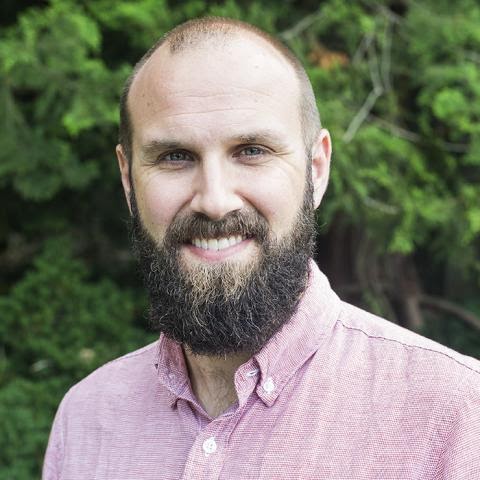
Mike Zarafonetis
Coordinator of Digital Scholarship and Research Services
Lutnick Library
Haverford College
Mike Zarafonetis is the Coordinator of Digital Scholarship and Research Services for Haverford College Libraries. Along with a wide range of collaborators in and beyond the library, he supports the critical application of technology to research, teaching, and learning for all library users. He’s particularly interested in helping Haverford faculty and students ask new kinds of questions through the application of digital tools, and in engaging new community partners on and beyond our campus. Since joining the college in 2011 he has supported faculty- and student-produced digital scholarship, worked closely with Quaker & Special Collections on digital projects and exhibit curation, and helped create co-curricular learning opportunities including internships and fellowships for students in the libraries. He’s helped build partnerships between Haverford Libraries and communities around the world, including indigenous language activists in Mexico as part of the Ticha project, human rights activists with the Grupo de Apoyo Mutuo in Guatemala as part of the GAM Digital Archive project, and the Scattergood Foundation as part of the Quakers and Mental Health project. He also works with colleagues at Bryn Mawr and Swarthmore to create learning opportunities in DS tools and methods across the Trico campuses as part of the Trico Libraries Digital Scholarship Group.
On most days, you can find him in Lutnick Library with his dog Tess, who is always available for a walk around campus to anyone who wants some time with a furry companion. Born and raised in West Michigan, Mike calls it “pop” instead of “soda” and may launch into spontaneous conversation about Bell’s beer or lake effect snow. He will also happily talk at length about the “Russian Five” and the great Detroit Red Wings teams of the late 1990s.
2021 DH Advisors and Subject Experts
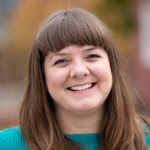
Mackenzie Brooks
Associate Professor & Digital Humanities Librarian
Washington and Lee University
@WLUDH
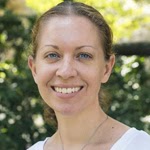
Jane Chandlee
Assistant Professor of Linguistics and Computer Science
Haverford College
https://chandlee.sites.haverford.edu

Richard Freedman
Professor of the Humanities
Haverford College
http://www.haverford.edu/users/rfreedma

Jane Mangan
Professor of History and Latin American Studies;
Director, Center for Interdisciplinary Studies
Davidson College
https://www.davidson.edu/people/jane-mangan
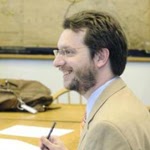
Bret Mulligan
Associate Professor of Classics
Haverford College
https://www.haverford.edu/users/bmulliga
Student Support
2021 Student Course Developer and Course Coordinator

Marcella Lees, Carleton College ’21
I recently graduated from Carleton College where I majored in History (focusing on classical and medieval history) and minored in Creative Writing and Medieval and Renaissance Studies. I also worked a lot within the Digital Humanities department both in my classes as well as working as a Digital Humanities Associate. In my free time I lead an a cappella group, play D&D, run a Jane Austen book club, am helping to develop a video game, and watch a lot of movies with friends and family over zoom. I have a particular interest in public history and have especially enjoyed working on digital projects to bring history to a wider audience such as working on the Carleton Covid-19 Archive or helping to create a podcast for the Northfield Historical Society comparing the Spanish influenza to the current pandemic. Right now I am with family in South Dakota applying for Library Science masters programs and assisting the LACOL DH team.
2021 Student Teaching Assistants
Marcella Lees, Carleton College ‘21
See above.
Jacob Clark, Swarthmore College ‘21
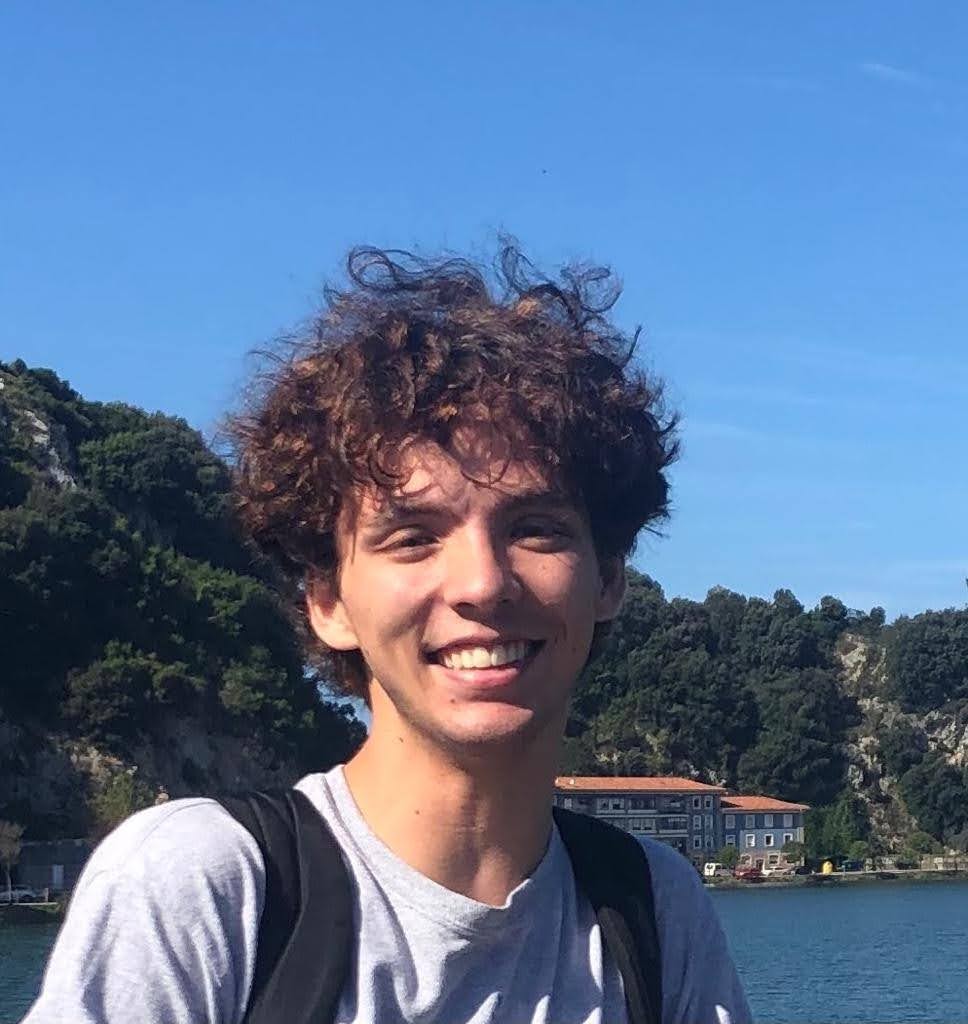
I recently graduated from Swarthmore College with a BA in Spanish and sociolinguistics. During my time at Swarthmore, I worked in the Peace Collection where my responsibilities included organizing and preserving historical documents as well as digitizing audio clips through the Sound & Sight project. As a student at Swat, I developed an interest in the queer history of Spain, particularly during Francisco Franco’s dictatorship, and how translation can protect this history and ensure that it is not forgotten. I am also passionate about ensuring equitable and quality English language education, particularly for immigrant families living in the United States. When I am not working, you can most likely find me hiking through the woods, playing Fortnite or Animal Crossing with my friends, or attempting to learn a new language.
Matt Koucky, Swarthmore College, 22
Matt Koucky is a Computer Science/Art History Major at Swarthmore College. They are currently doing independent research on Andrey Ershov – a late-Soviet computer scientist active in developing Russian-language computer science educational programs, formulating foundational theories of artificial intelligence and programming languages within Russia, and establishing narratives around the craft of computer programming. Matt Koucky has worked in libraries in Vermont and at Swarthmore since middle school and they plan to join a library sciences program in the future.
